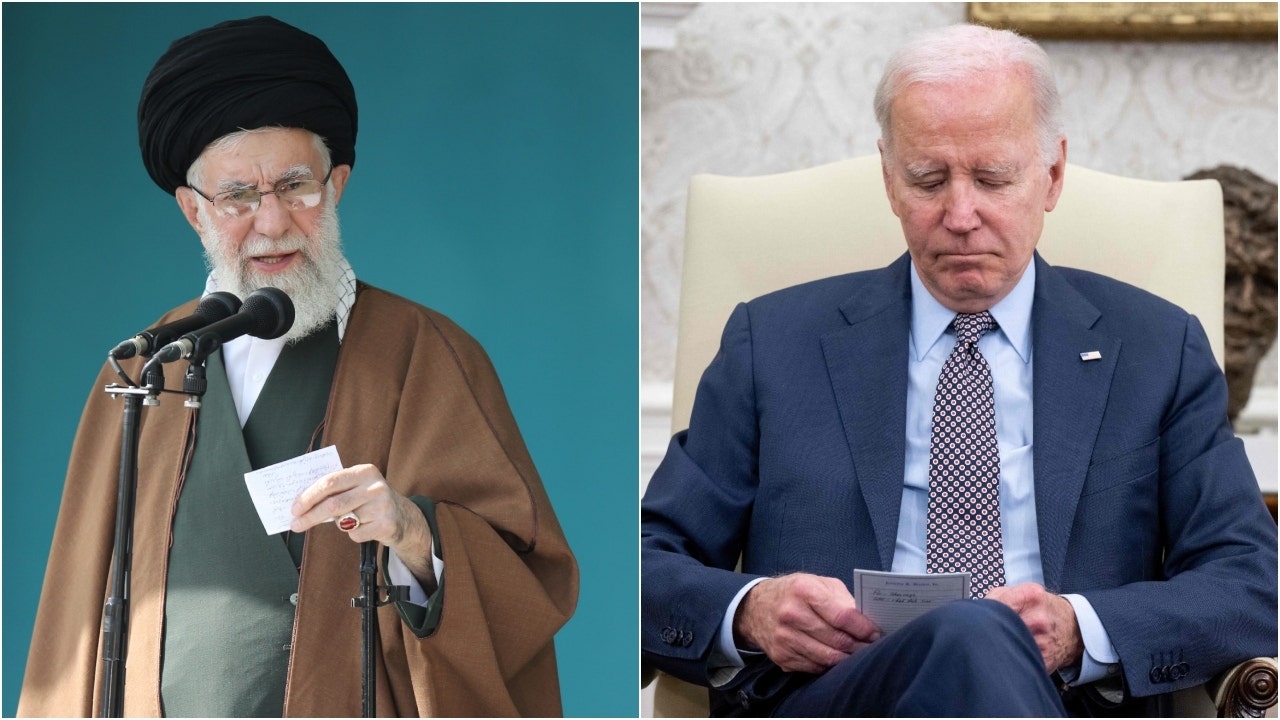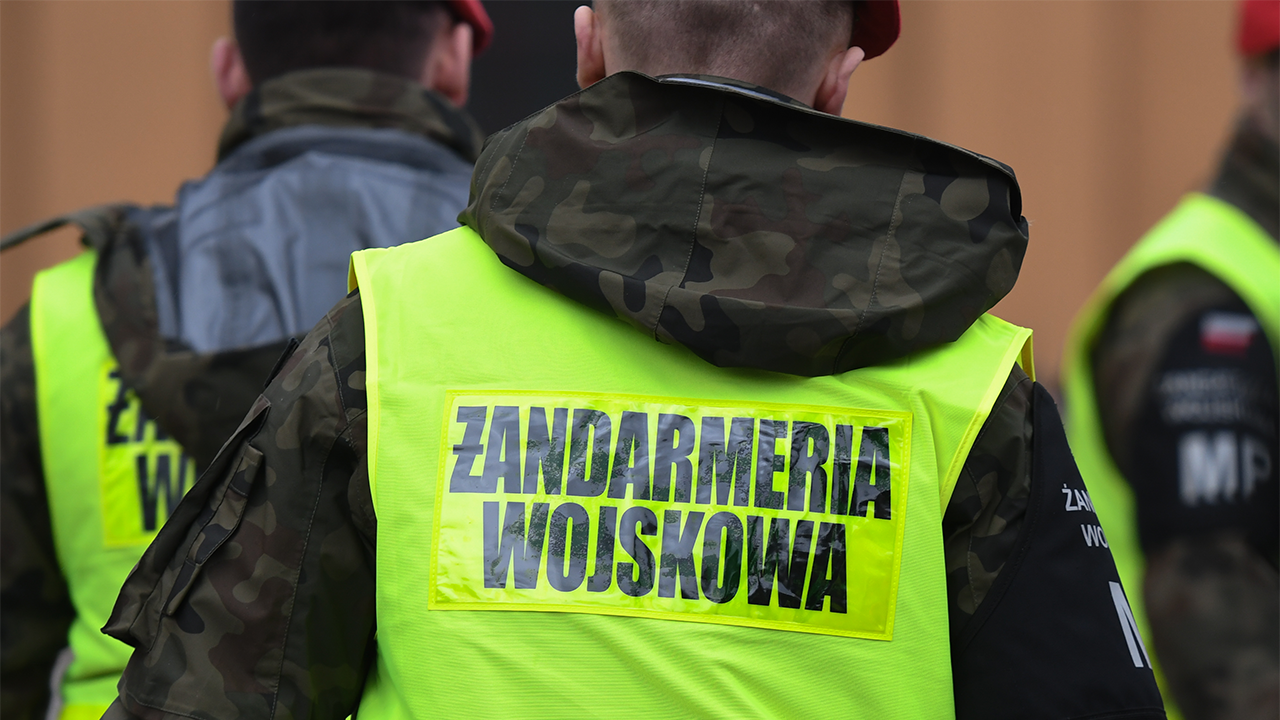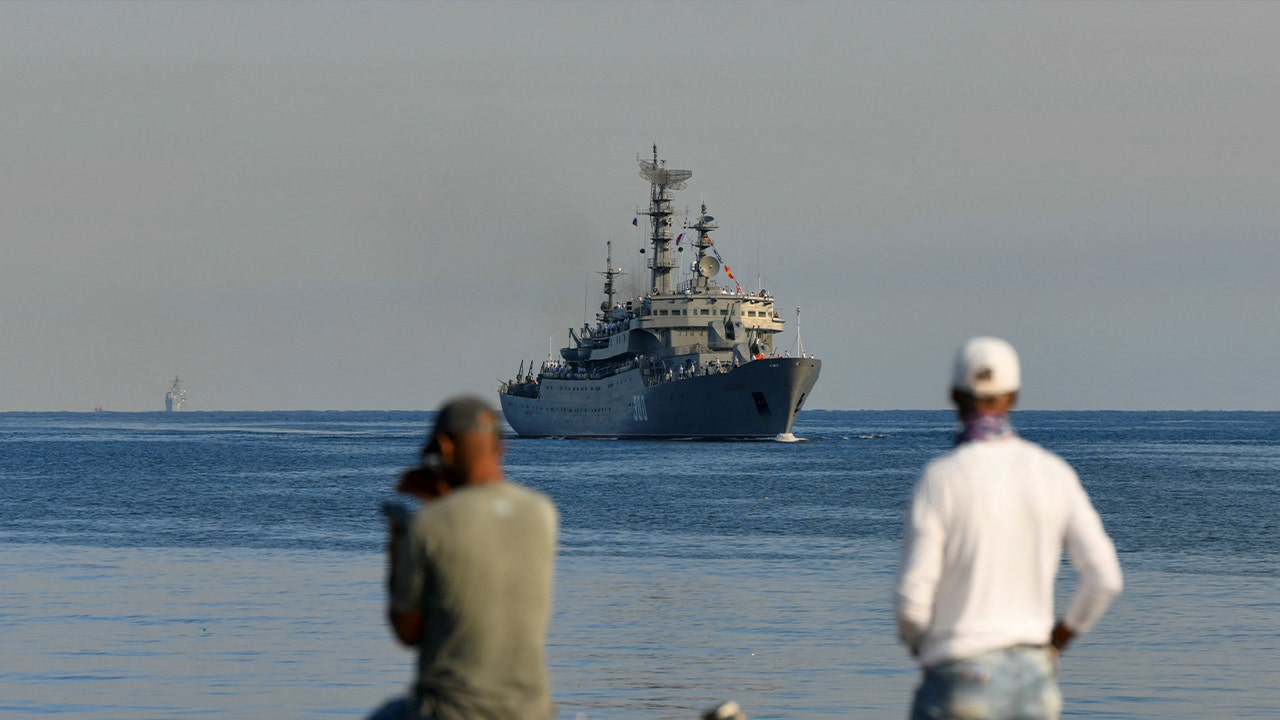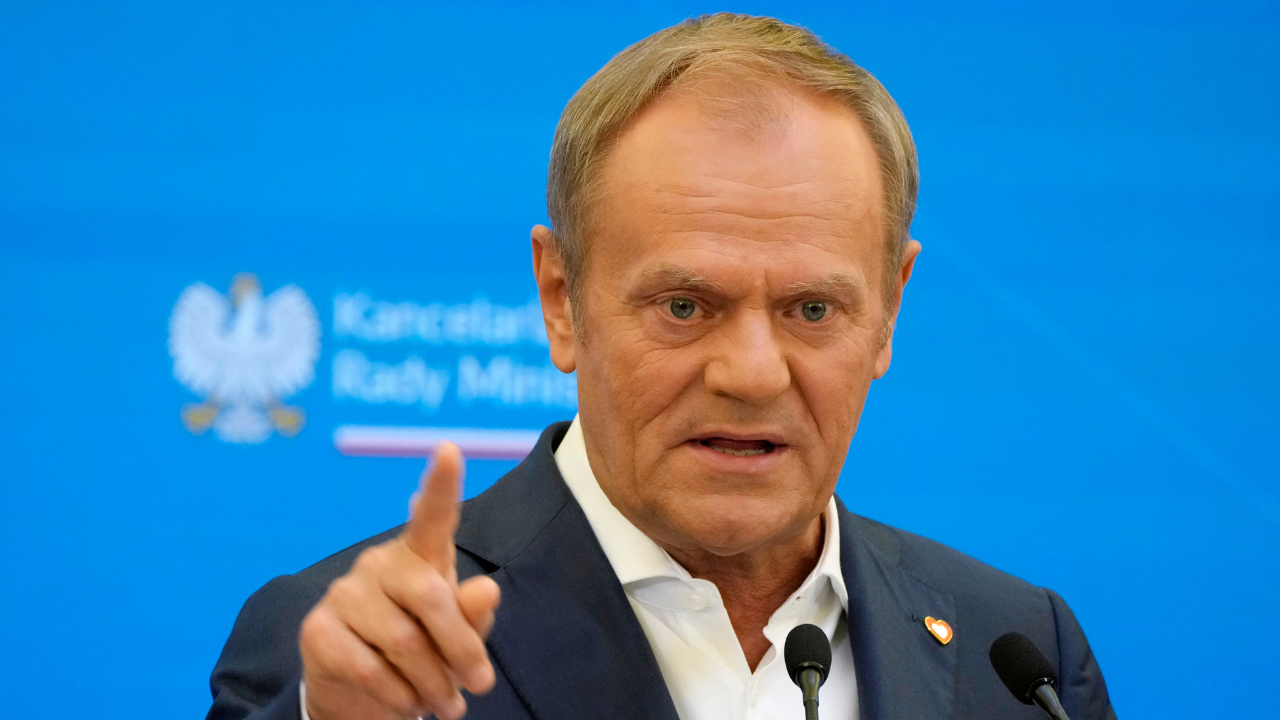JERUSALEM – The Islamic Republic of Iran retaliated against the Biden administration’s support of a mild U.N. watchdog agency rebuke of Tehran for its work on its covert illicit nuclear weapons program this week.
The U.N.’s International Atomic Energy Agency (IAEA) said its inspectors had verified Monday that Iran has begun feeding uranium into three cascades of advanced IR-4 and IR-6 centrifuges at its Natanz enrichment facility. Cascades are a group of centrifuges that spin uranium gas together to enrich the uranium more quickly.
So far, Iran has been enriching uranium in those cascades up to 2% purity. Iran already enriches uranium up to 60%, a short, technical step away from weapons-grade levels of 90%.
IRAN CAPABLE OF BUILDING NUCLEAR BOMB IN ONE WEEK, REPORT FINDS AS MIDDLE EAST TENSIONS FLARE
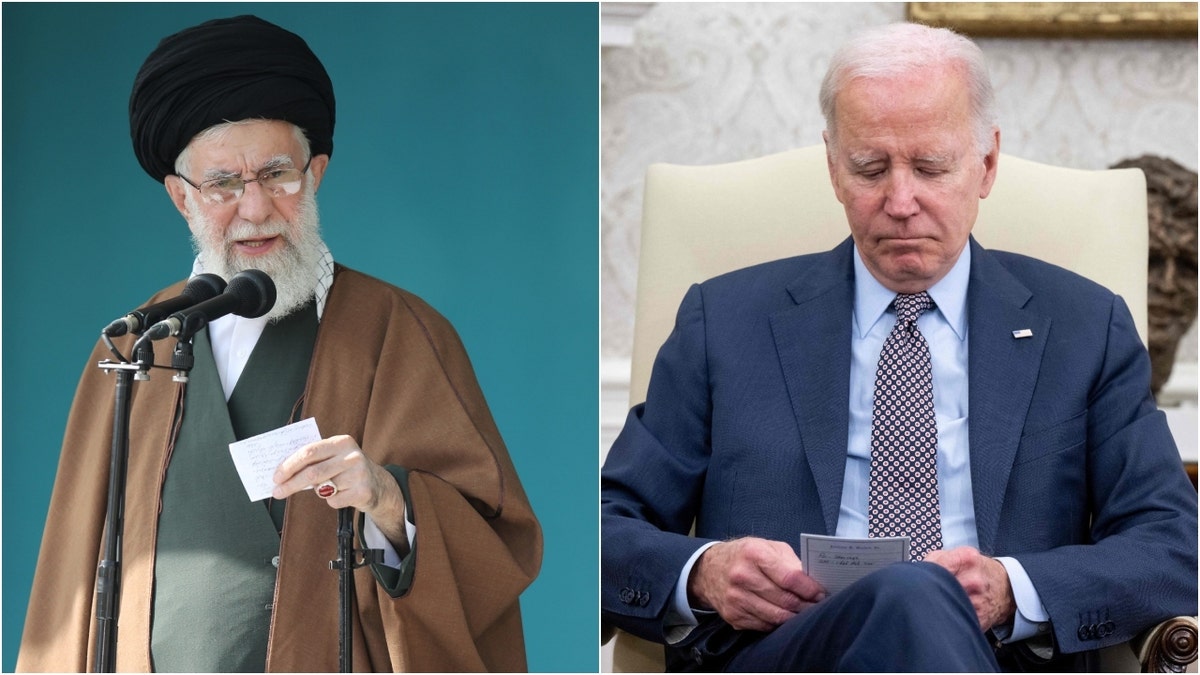
President Joe Biden, right, and Iranian Supreme Leader Ali Khamenei, left (Getty Images)
Last week, Israel’s former Defense Minister Avigdor Lieberman, a member of Israel’s parliament (Knesset), told Israel’s Army Radio Tuesday Iran is “planning a Holocaust for us in the next two years.”
In a statement, State Department spokesman Matthew Miller said in response to Tehran’s move that “Iran aims to continue expanding its nuclear program in ways that have no credible peaceful purpose.”
He added, “These planned actions further undermine Iran’s claims to the contrary. If Iran implements these plans, we will respond accordingly.” Miller declined to state what actions the U.S. government will take against the rogue regime in Tehran. The State Department has designated Iran’s regime as the world’s worst international state-sponsor of terrorism.
Behnam Ben Taleblu, a senior fellow at the Washington-based Foundation for Defense Democracies (FDD), sharply disagreed with the U.S. State Department. He told Fox News Digital that “While Washington has promised to ‘respond accordingly,’ it’s been the delayed response, missteps and absorption of Tehran’s previous nuclear moves that got us to this point.”

Iran’s first functioning nuclear power plant in Bushehr, Iran, on April 28, 2024. (Photo by Morteza Nikoubazl/NurPhoto via Getty Images)
Taleblu continued, “Washington must aggressively enforce oil and petrochemical sanctions and militarily threaten that which Tehran holds dear in the region to reset the otherwise sticky impression in the minds of the Islamic Republic’s decision-makers about U.S. and Western resolve.”
Earlier this week, a State Department spokesperson told Fox News Digital, “The United States continues to have grave concerns about Iran’s nuclear program, as we have made clear at the IAEA for many years and again today. Iran’s record speaks for itself, as does its continued failure to demonstrate to the IAEA and the world that its nuclear program is exclusively peaceful.”
The spokesperson added “The Iranian regime continues to amass a growing stockpile of highly enriched uranium for which there is no credible civilian purpose. We look forward to working with fellow Board members [on]a sustainable, effective solution that includes Iran’s full cooperation with the IAEA, especially as we look ahead to October 2025, which is an inflection point for the international community’s quest to make certain that Iran’s program remains exclusively peaceful.”
US IGNORES IRAN’S ACTIVE NUCLEAR WEAPONS ACTIVITIES BY USING ‘DEFECTIVE’ DEFINITION: EXPERT
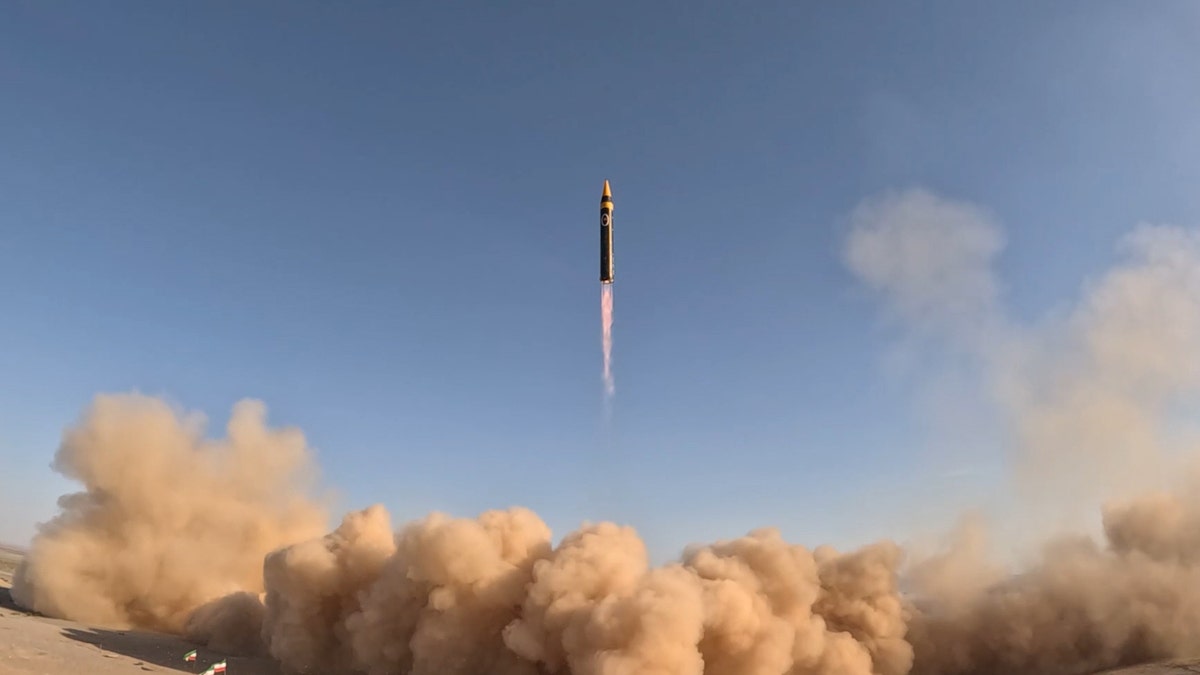
TEHRAN, IRAN – MAY 07: Iran’s medium-range ballistic missile called Hayber (Hurremshahr-4) is seen after the launch during the promotional program organized with the participation of high-ranking military officials in Tehran, Iran on May 7, 2023. The liquid-fueled ballistic missile Hayber, with a range of two thousand kilometers, can carry 1,500 kilograms of warheads. (Photo by Iranian Defense Ministry / Hanodut/Anadolu Agency via Getty Images) (Iranian Defense Ministry / Hanodut/Anadolu Agency via Getty Images)
When pressed by Fox News Digital as to whether the U.S. will impose new sanctions on Iran’s regime, including a crackdown on Tehran’s sale of oil to China, the State Department spokesperson said, “We continue to work with E3 [France, Germany and Great Britain] and the international community on ways to increase pressure on Iran across [a] full range of its destabilizing behavior. We are actively increasing pressure on Iran through a combination of sanctions, deterrence and international isolation to counter Iran’s destabilizing behavior and prevent them from obtaining a nuclear weapon, which President Biden has been clear he will not allow. Any notion that we are backing off is false.”
Taleblu, whose main focus is the Iranian regime’s threat to international security, noted, “Iran is continuing its hourglass strategy, expanding its atomic program while circumscribing international monitoring reports of more advanced centrifuges being installed and operated can’t just be shrugged off by the administration. These machines offer greater means to enrich more uranium in less time.”
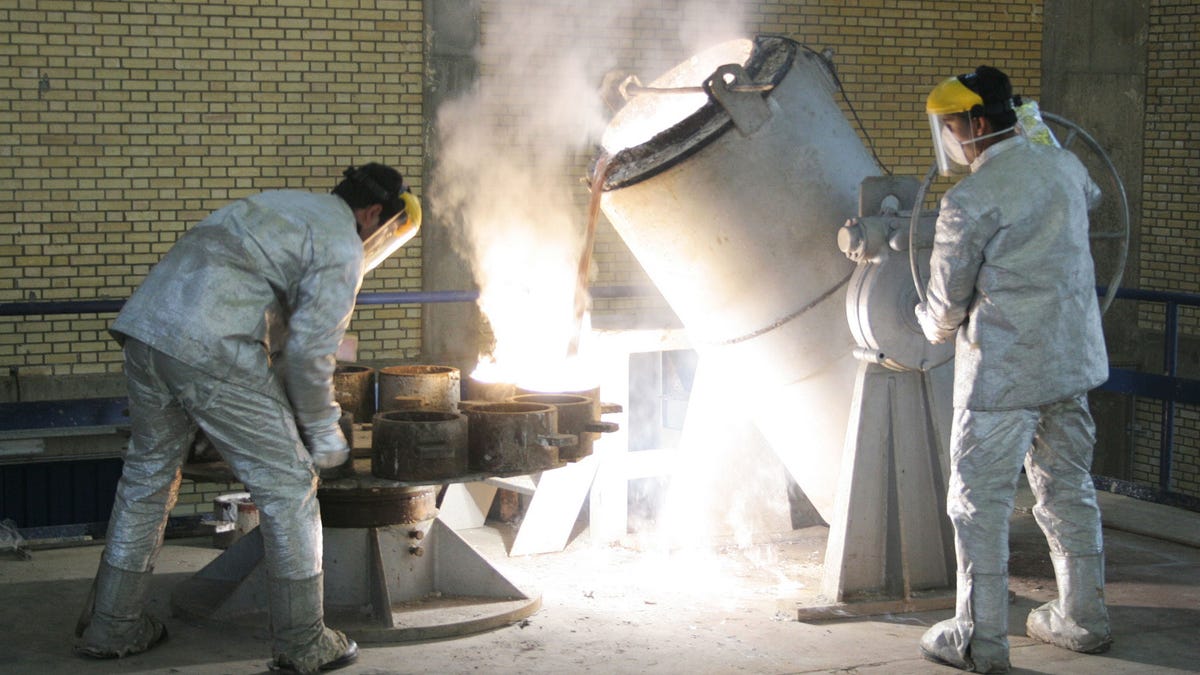
Technicians work inside a uranium conversion facility producing unit on March 30, 2005, just outside the city of Isfahan, about 254 miles (410 kilometers), south of capital Tehran, Iran. The cities of Isfahan and Natanz in central Iran are home to the heart of Iran’s nuclear program. The facility in Isfahan makes hexaflouride gas, which is then enriched by feeding it into centrifuges at a facility in Natanz, Iran. Iran’s President Mohammad Khatami and the head of Iran’s Atomic Energy Organisation Gholamreza Aghazadeh visited the facilities. (Photo by Getty Images) (Getty Images)
Iran also plans to install 18 cascades of IR-2m centrifuges at Natanz and eight cascades of IR-6 centrifuges at its Fordo nuclear site. Each of these classes of centrifuges enriches uranium faster than Iran’s baseline IR-1 centrifuges, which remain the workhorse of the country’s atomic program.
Ali Shamkhani, a former top security official within Iran’s theocracy who still advises Supreme Leader Ayatollah Ali Khamenei, wrote on X that Tehran remains committed to nuclear safeguards, though it “won’t bow to pressure.”
CLICK HERE TO GET THE FOX NEWS APP
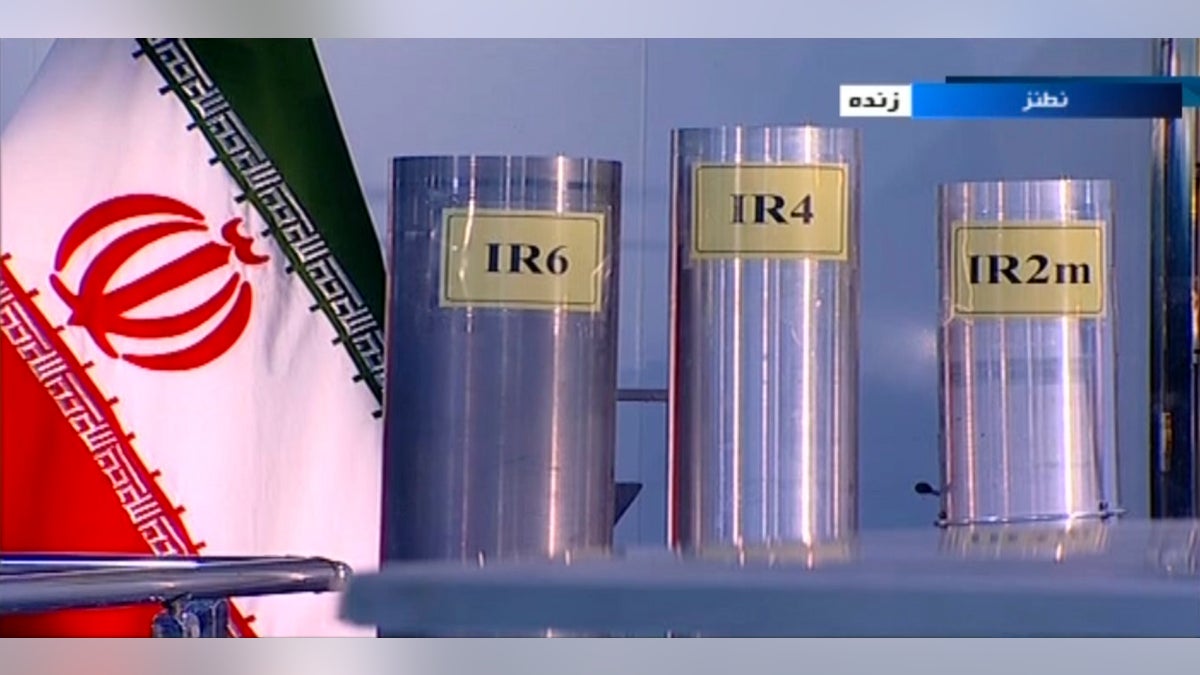
FILE – In this June 6, 2018, frame grab from Islamic Republic Iran Broadcasting, IRIB, state-run TV, three versions of domestically-built centrifuges are shown in a live TV program from Natanz, an Iranian uranium enrichment plant, in Iran. Iranian President Hassan Rouhani is reportedly set to announce ways the Islamic Republic will react to continued U.S. pressure after President Donald Trump pulled America from Tehran’s nuclear deal with world powers. Iranian media say Rouhani is expected to deliver a nationwide address as soon as Wednesday, May 8, 2019, regarding the steps the country will take. (IRIB via AP, File)
“The U.S. and some Western countries would dismantle Iran’s nuclear industry if they could,” Shamkhani wrote.
Since the collapse of Iran’s 2015 nuclear deal with world powers following the U.S.’ unilateral withdrawal from the accord in 2018, the country has pursued nuclear enrichment just below weapons-grade levels. The Trump administration withdrew from the atomic deal in 2018 because, it argued, the accord permitted Tehran to build a nuclear weapon. Fox News Digital revealed last year that Iran’s regime continued to work on the construction of an atomic bomb.
The Associated Press contributed to this report.
